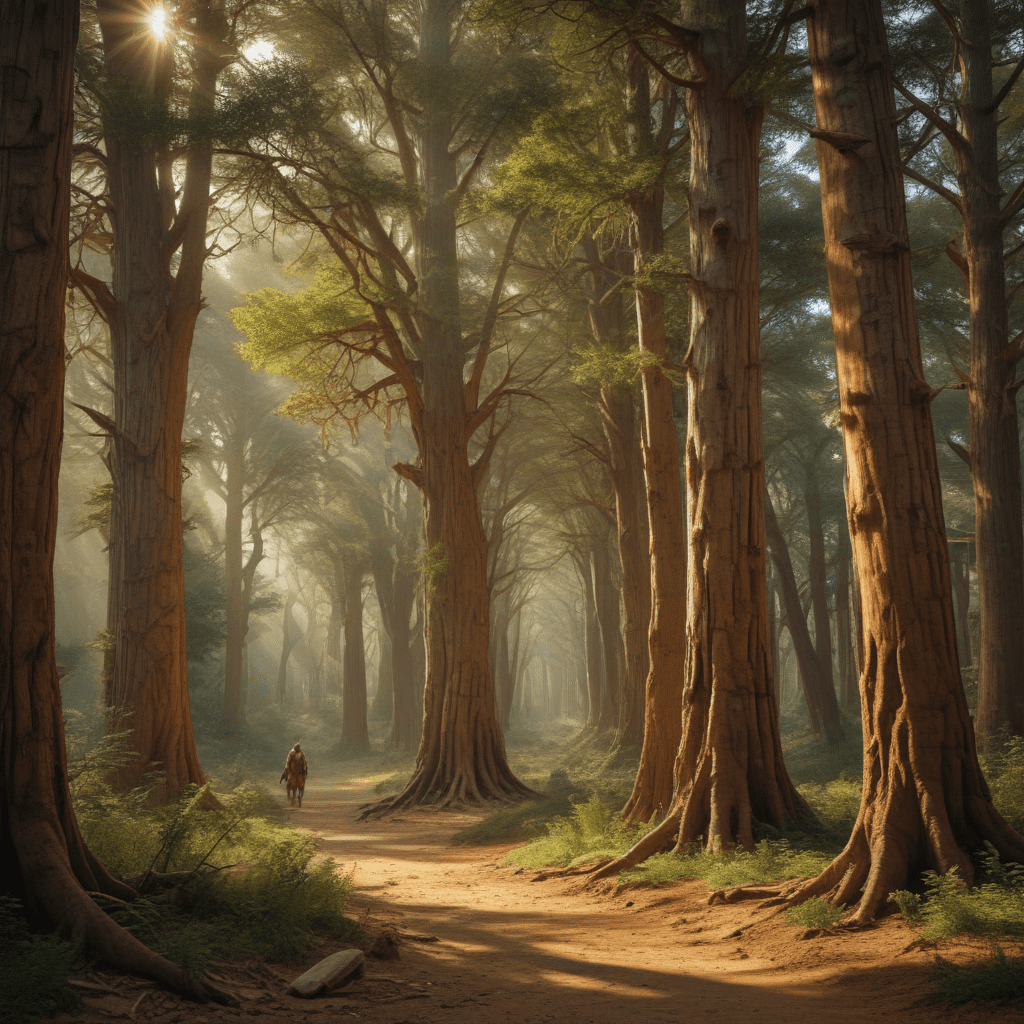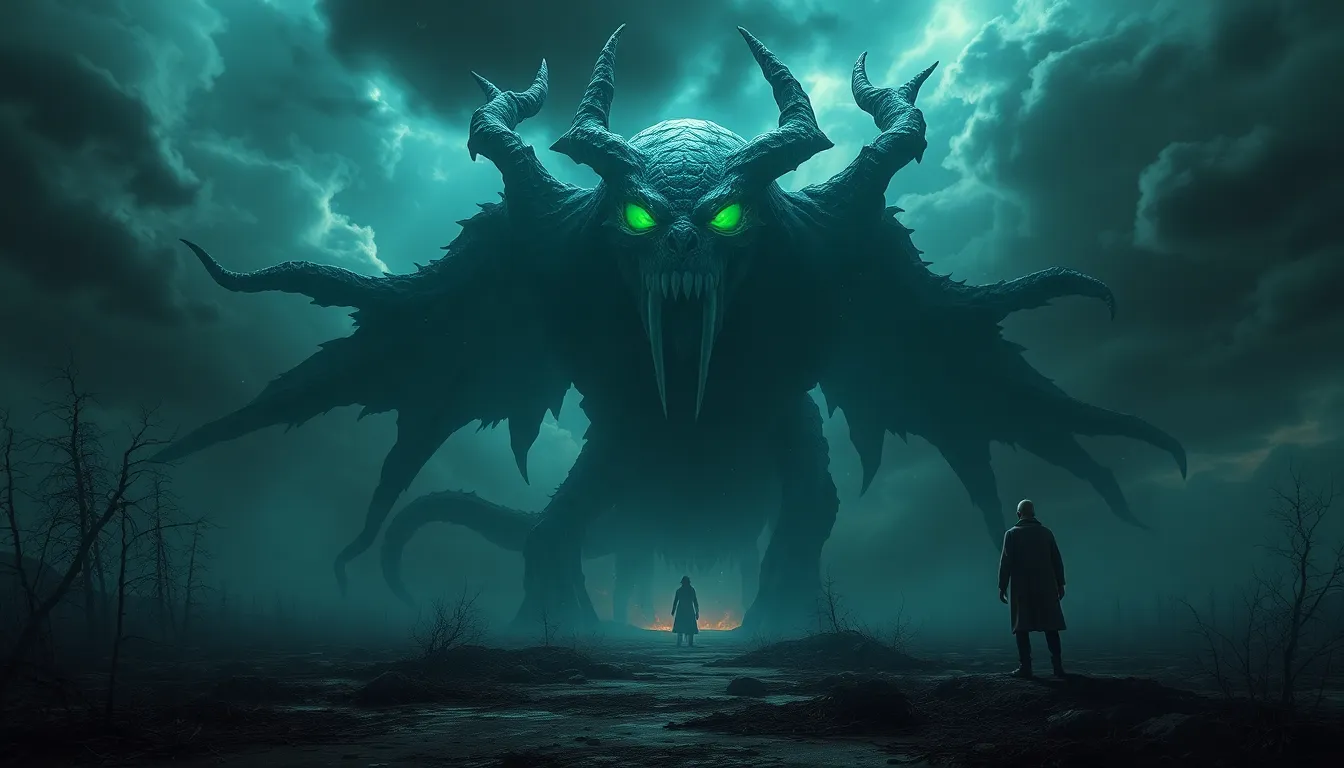The Land of the Two Rivers and its Forests
Nestled between the Tigris and Euphrates rivers, Mesopotamia, meaning "the land between the rivers," flourished as a cradle of civilization for millennia. Its fertile lands and abundant resources fostered the rise of powerful empires, advanced cultures, and rich mythologies. Amidst the bustling cities and fertile plains, expansive forests played a vital role in Mesopotamian life, providing sustenance, shelter, and inspiration. Among these, the cedar forest held a unique and profound significance, deeply intertwined with the myths and beliefs of the Mesopotamian people.
The Cedar: A Sacred Tree in Ancient Mesopotamia
The cedar tree, with its towering height, fragrant aroma, and durable wood, held a special place in Mesopotamian mythology. Revered for its strength, resilience, and longevity, it symbolized immortality, divinity, and royal power. In Mesopotamian art and literature, the cedar tree often appears as a symbol of divine presence and protection. It adorned the sacred temples and palaces, its wood used to construct altars, statues, and other religious artifacts. The cedar's fragrance was believed to ward off evil spirits and purify the air, making it an essential element in religious rituals and ceremonies.
The Cedar Forest: A Realm of Mystery and Divinity
The cedar forests of Mesopotamia were more than just a source of timber; they were considered sacred groves, imbued with a sense of mystery and divinity. These dense, ancient forests were believed to be the dwelling places of gods and goddesses, where they could commune with nature and interact with mortals. The rustling leaves and the scent of cedar were seen as signs of the divine presence, inspiring awe and reverence among the Mesopotamian people. The forests were often depicted in myths and legends as places of transformation and revelation, where gods and heroes could experience epiphanies and receive divine guidance.
The Cedar Forest: Home to the Great Gods
In Mesopotamian mythology, the cedar forest was associated with several important deities. Ishtar, the goddess of love, fertility, and war, was particularly connected to the cedar. She was often depicted as residing in a cedar forest, where she would bathe in its sacred waters and adorn herself with its fragrant boughs. Enki, the god of wisdom and water, was also associated with the cedar forest, as he was believed to have created the first cedar trees and taught humans how to use their wood. Other deities, such as Shamash, the sun god, and Marduk, the chief god of Babylon, were also linked to the cedar forest, reflecting its importance in Mesopotamian religious beliefs.
The Cedar Forest: A Place of Ritual and Sacrifice
The cedar forests were not just places of reverence and divine presence; they were also sites of ritual and sacrifice. Mesopotamian people would perform religious ceremonies in the cedar groves, offering sacrifices to the gods and seeking their favor. Animals, such as goats, sheep, and bulls, were sacrificed to appease the deities and ensure their continued protection. Rituals involving the burning of cedarwood were also common, as the smoke was believed to carry prayers and offerings to the heavens.
6. The Cedar Forest: A Symbol of Life and Death
In Mesopotamian mythology, the cedar forest was entangled with the cycle of life and death. The evergreen nature of the cedar tree symbolized eternal life and rebirth, while the decaying logs on the forest floor represented death and decay. This duality reflects the Mesopotamian belief in the cyclical nature of existence, where death is not an end but a transition to a new beginning. The cedar forest served as a reminder of this constant cycle, offering solace and hope for the afterlife.
7. The Cedar Forest: A Source of Power and Protection
The cedar forest was also considered a source of immense power and protection. The sturdy wood of the cedar tree was used to construct fortifications, weapons, and tools, providing both physical and symbolic protection. The forest itself was seen as a barrier against evil forces, its dense foliage and towering trees warding off malevolent spirits and harmful influences. Kings and rulers would often visit the cedar forests to seek strength and guidance, believing that the spirits of the forest would imbue them with power and wisdom.
8. The Cedar Forest: A Symbol of Kingship and Authority
The cedar forest held significant political importance in Mesopotamian society. The cedar tree was associated with royalty and authority, symbolizing the strength, stability, and longevity of a just ruler. Kings would often wear crowns made of cedarwood, signifying their connection to the divine and their authority over the land. The construction of palaces and temples with cedarwood further emphasized the association between the tree and power, demonstrating the king's wealth and prestige.
9. The Cedar Forest: A Metaphor for the Human Soul
The cedar forest also served as a metaphor for the human soul. Just as the cedar tree is rooted in the earth but reaches towards the heavens, the human soul is believed to be tethered to the material world while striving for spiritual enlightenment. The dense and tangled undergrowth of the forest could represent the challenges and obstacles encountered on life's journey, while the towering trees reaching for the sky symbolized the potential for growth and transcendence.
10. Conclusion: The Enduring Legacy of the Cedar Forest in Mesopotamian Mythology
The cedar forest held immense symbolic and practical significance in Mesopotamian mythology. It was a place of mystery, divinity, and ritual; a source of power and protection; and a symbol of life, death, kingship, and the human soul. The enduring legacy of the cedar forest in Mesopotamian mythology is a testament to the profound connection between humans and nature, reminding us of the power of symbols to shape our understanding of the world and ourselves.
Frequently Asked Questions (FAQ)
- What was the role of the cedar forest in Mesopotamian religion?
- How was the cedar forest used in Mesopotamian rituals and ceremonies?
- What gods and goddesses were associated with the cedar forest?
- What was the symbolic meaning of the cedar tree in Mesopotamian mythology?
- How did the cedar forest influence Mesopotamian art, literature, and architecture?



